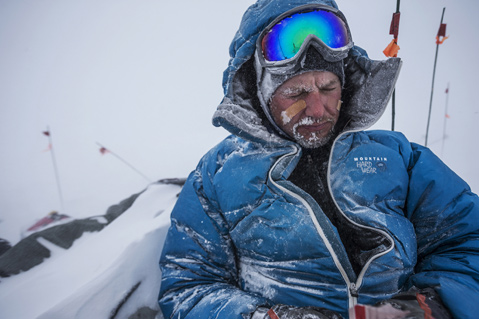Mike Libecki Presents ‘Untamed Antarctica’ at UCSB
Explorer Kicks Off UCSB Arts & Lectures’ ‘National Geographic' Live Series

If there’s a remote rock spire or mountain unseeable on Google Earth and almost completely untouched by humans, chances are Mike Libecki climbed it. The intrepid National Geographic explorer specializes in first ascents, daring to be the first human on the world’s most isolated peaks. This Sunday, he comes to UCSB with Untamed Antarctica, the first in a series of UCSB Arts & Lectures’ National Geographic Live presentations, in which he will describe his experience scaling Bertha’s Tower, a nearly inaccessible rock spire in one of the coldest, windiest, farthest-from-anywhere locales on earth.
A consummate adventurer, Libecki has made 65-plus expeditions — with another 23 already on the way — that have taken him from Greenland to Papua New Guinea. Though passionately, even obsessively, drawn to the thrilling allure of uncharted climbs, he is equally passionate about adventuring with a broader purpose, whether it be bringing solar panels to villages in Kyrgyzstan or conducting DNA research with Adventurers and Scientists for Conservation.

Libecki’s main partner in crime is his 12-year-old daughter, Lilliana, who’s already touched seven continents and 15 countries with dad, constantly learning the value of optimism and faith in oneself. “You have to have belief, courage, perseverance, and you have to be patient,” said the elder Libecki. “All of these words apply to expeditions and everyday life.”
Libecki’s presentation will center on the joys and struggles of climbing in an environment as mysterious, unexplored, and harsh as Antarctica, but he says connecting with unknown cultures is just as important as connecting with unknown lands. “What’s more important than getting to know our planet, getting to know our people?” he asked. “There is the wild, but just as important are the cultures and the people of the world that you don’t know. Anything mysterious is real adventure and education.”
4·1·1
Mike Libecki’s Untamed Antactica is Sunday, October 25. Future Nat Geo Live talks at UCSB include presentations on forest canopies, big cats, and Spinosaurs. See artsandlectures.sa.ucsb.edu.



